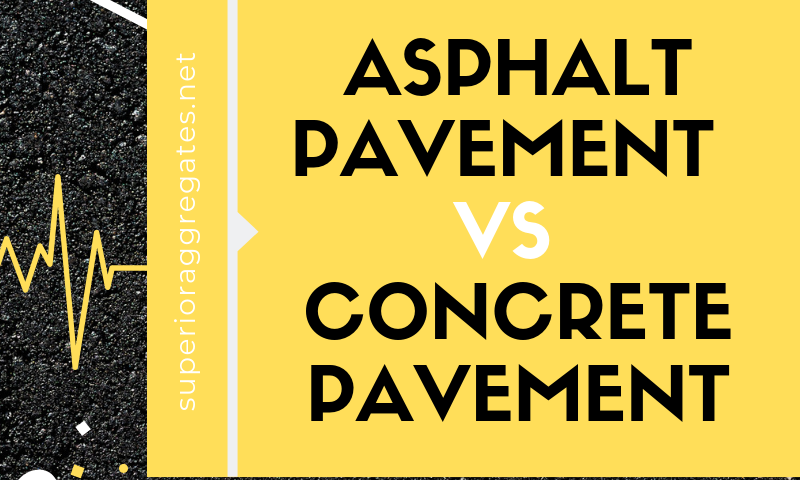
Asphalt Pavement vs Concrete Pavement
Although the most obvious difference between asphalt pavement and concrete pavement is the appearance, there are many more differences that you may not notice at first sight. When deciding between the two surfaces, appearance is only one of the many factors to consider; continue reading to learn about the five main differences between asphalt and concrete: cost, lifespan, upkeep, sensitivity to temperature, and ease of repair.
Cost
When deciding between asphalt and concrete driveways, price is often the first consideration. Asphalt is typically cheaper, running $2-$5 per square foot on average. Concrete prices begin around $3-$9 per square foot. Many people who choose concrete driveways opt for customized designs, which can drive the price even higher.
Lifespan
While concrete may cost more initially, it has an average lifespan of about 30, and even up to 40 years, compared to an average lifespan of about 20 years for asphalt. This makes costs more comparable when thinking about the long term. This is something to consider when deciding between the two. If you will be in your home for 30-40 years, concrete may actually be more cost effective in the long run. Regardless of the pavement type, both require strategies for upkeep.
Upkeep
In order to keep asphalt pavement functioning to its highest potential, it needs to be re-sealed every few years. For asphalt pavement, sealing is strictly for function, and not for appearance, as the dark color of asphalt naturally hides stains and spills.
Concrete does not require as much upkeep, but it is more likely to stain or fade over time, so in order to maintain the appearance of concrete pavement, it can also be sealed.
Sensitivity to Temperature
If you’ve ever flown from north to south or vice versa, you’ve probably noticed that the majority of the driveways in the north are asphalt, while the majority of driveways in the south are concrete. This is because of how well each material withstands and reacts to temperature.
In extreme heat, asphalt can become gooey and even start to melt, and when it gets cold, it becomes much harder and more brittle. When asphalt continually goes through these temperature fluctuations, it is much more likely to crack.
Concrete, on the other hand, has a tendency to crack and buckle in extreme cold. Concrete also tends to be more popular in warmer climates because it doesn’t retain heat like asphalt does.
Ease of Repair
Even when you do everything you can to properly maintain a pavement surface, damages may still happen. When asphalt cracks or develops holes, it can be filled and sealed relatively easily. Because of the dark color, repairs are not very noticeable.
When repairing cracks in concrete, the repairs can be extremely obvious. Often, when there is a crack in concrete asphalt, the decision is made to replace the entire surface, rather than trying to repair and match the existing surface.
Conclusion
If you’re trying to decide between asphalt and concrete pavement, be sure to thoroughly research and think about your options. Your budget and the climate in which you live might be two of the biggest factors to take into consideration.
